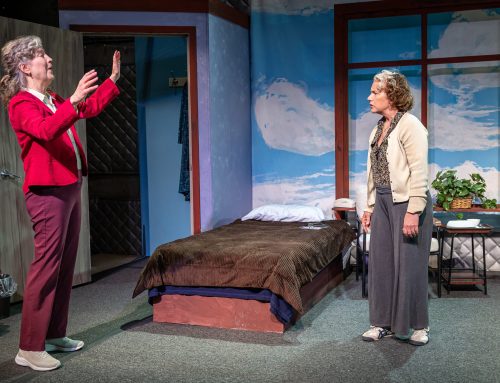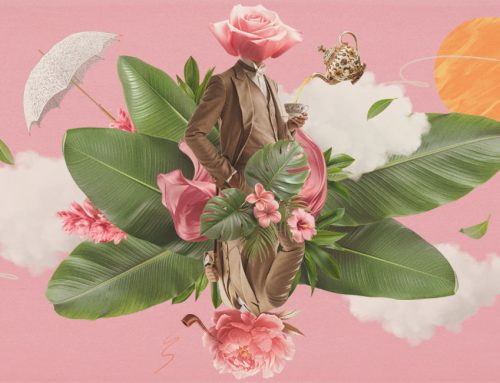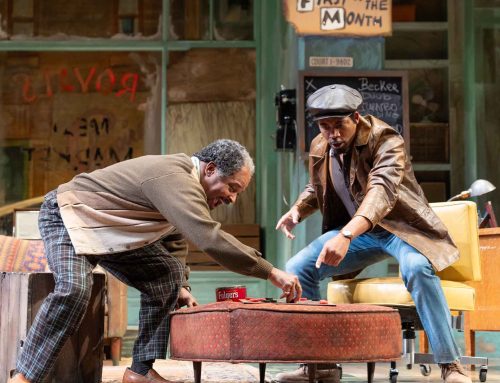at the Oregon Shakespeare Festival
Pride and Prejudice
written by Jane Austin
adapted by Joseph Hanreddy and J.R. Sullivan

It’s not that the production was so good or so bad that words fail me, it’s that examining this sure-fire crowd pleaser is as pointless as the movie critics panning Sex in the City 2. Basically, any review of either production isn’t going to matter to anyone. Fans of the genre are going to go and applaud, regardless of the artistic merits of the show.
Pride and Prejudice is Oregon Shakespeare Festival’s 2010 farce. Wacky. Truly good costumes for days. Supposedly witty banter. Happy ending. If you love a pretty, mindless evening in the theater, you’re going to go and enjoy every minute.
My opinion: it’s piffle. A waste of acting talent and theater space. A missed opportunity to educate and inform. The Further Adventures of Hedda Gabler, another recent example of the annual farce, pushed limits more and provided more than just laughs. Noises Off offered more true wit and wisdom.
Pride and Prejudice will satisfy only those who need a content-free farce in their theater schedule.
From the company’s perspective they have a mostly sold out soft-serve story that pleases crowds and will be remembered as a hit.
So, why bother carping?
Who cares if this adaptation of Austin’s manners comedy avoids any deeper social commentary by making fun of the victims of the financial inheritance rules of its time? Does it matter that instead of mocking the fiscal mores of the culture, this Pride mocks the women trying to survive the unfair customs? No, of course not.
The set, the costumes, and the bright-face acting will carry the day, even if they are carrying the production around in merry-go-round circles that merely amuse without challenging, changing, or even commenting.
For me, a celebration of the financial enslavement of women is, at best, odd. In my drive to find meaning in theater, I keep wondering why this play was chosen, why this adaption, why the direction that give us surface-level flirting instead of any deeper meaning. Why?
The acting performances are excellent. The set is excellent. The costumes are excellent plus.
But, the play selection, adaptation, and pageant-but-not-pungent focus of the direction made me disappointed. This is not art, it’s a live sit-com.
Ozdachs Rating: ![]()





Leave A Comment